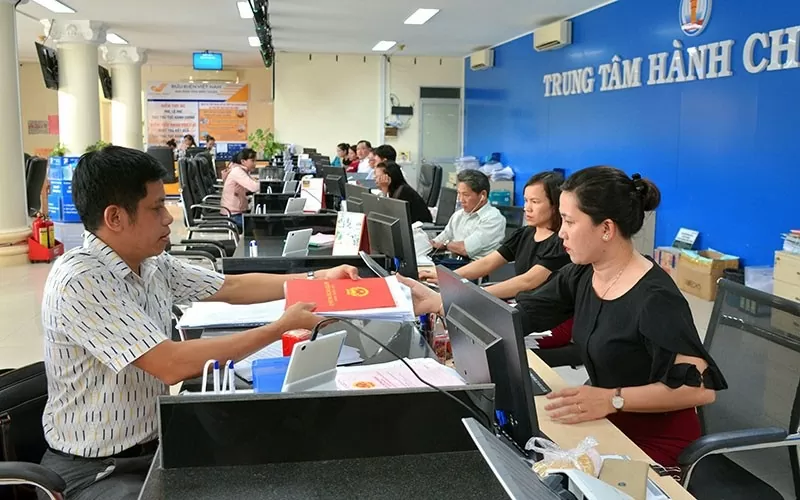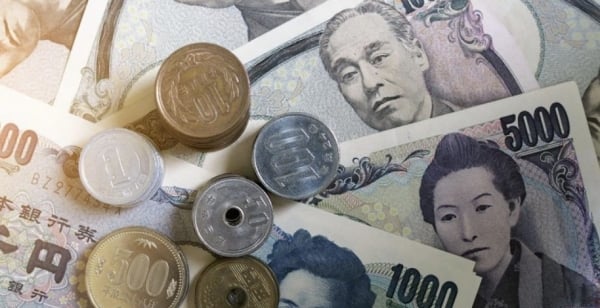This message was given by Mr. Phan Duc Hieu - Member of the National Assembly's Economic Committee in an interview with Cong Thuong Newspaper.
 |
| Mr. Phan Duc Hieu - Member of the National Assembly's Economic Committee. (Photo: Can Dung) |
In the process of national development, it is impossible not to mention the private economic sector. Can you outline the picture of Vietnam's private economic development since the 1986 renovation until now? And what outstanding policy orientations have made a strong mark in the development of private enterprises in Vietnam?
From the State's perspective, the institutional and policy environment has a great impact on economic development.
Firstly, regarding the Party's policies, I can point out important milestones such as:
Resolution of the 6th Central Conference, Session VI, our Party affirmed: The private economy is allowed to develop without any restrictions on location, scale, or industry that is not prohibited by law. That is a very big change.
The 5th Central Conference of the 9th tenure continued to identify: The private economy is an important component of the national economy, private economic development is a long-term strategic issue in the development of a multi-sector socialist-oriented economy, contributing significantly to the successful implementation of the core task of economic development, industrialization, modernization, and enhancing the country's internal strength in international economic integration.
The next major change in policy was at the 10th Party Congress, the private economy was officially confirmed as an economic component on the basis of merging two economic components: Individuals, smallholders and private capital and clearly defined that "the private economy plays an important role, is one of the driving forces of the economy" .
After that, the 13th National Party Congress continued to clarify and deepen many new issues on private economic development. The 13th National Party Congress affirmed that the strong development of the private economic sector in terms of quantity, quality, efficiency, and sustainability will truly become an important driving force in economic development. Eliminate all barriers and prejudices, create all favorable conditions for private economic development...
Second, the Constitution recognizes that every individual has the right to freely conduct business in industries that are not prohibited by law. More importantly, it ensures that property is protected, which means safety.
The next point I want to emphasize is the birth of Resolution 41, not only to facilitate production and business activities as usual but also to encourage the spirit of enterprises.
Along with institutional improvement, we have something that many countries do, which is institutional reform programs, called broad-based institutional reform programs. Starting with the story of granting business licenses in 2000 and most recently, more than 10 years ago, the Government had a specialized Resolution on improving the investment and business environment.
So, I would like to emphasize again, what we are currently pursuing is not only to remove barriers and facilitate production and business activities, but we also aim to reduce risks, increase safety, promote quality development and motivate both mentally and materially.
From a macro perspective, we have had a strategic orientation for the development of the private economic sector, and realized this orientation through mechanisms and policies suitable for the subjects and fields. However, not only the business community but also foreign economic experts at a number of forums on Vietnam's economic development have expressed the view that: Many policies have been issued, but Vietnam's weakness is the policy implementation. In your opinion, where is the problem in implementing policies to promote the development of our private economy?
First, we must clearly define what is an obstacle and what is a barrier. We must acknowledge that reality is always changing, and market demands are increasingly higher.
We also have to admit that there are policies that may have been appropriate at the time of their issuance, but soon after, due to business demands, due to the market demands to be faster, more responsive, to reduce costs to be more competitive... it is normal that they become inappropriate.
So, all concepts say that institutional reform is a regular, continuous process.
Regarding policy implementation, I would like to talk more deeply about two aspects. The first is the Party's policies, Resolutions; the Constitution is institutionalized by specific laws. Having worked for many years in the field of institution and policy building, I believe that timeliness is a big challenge. Timeliness means that the policy is like this, but how long does it take for the policy to become a regulation?
The second is the completeness and specificity to be able to implement. The general policy is that everyone has the right to freedom of business, but how to institutionalize it into a specific regulation is not a law but requires many laws.
Once there are laws, how do we enforce them? The positive side is that we are constantly improving the laws. It must be said that now going through many procedures is much more convenient than in the past. In fact, I just changed my driver's license, the procedures were very convenient. But compared to the requirements, I see one point that needs improvement.
First, on a macro level, fair competition among businesses is very important. The same procedure, if it is slower in one place than another, can be less convenient for businesses. Or the same import procedure, but if it is faster at one port and slower at another, some businesses may suffer losses because their goods have been sold first. I call this consistency and uniformity.
Next, in implementing policies, there are very limited infrastructure. For example, online declaration, sometimes network congestion, infrastructure or software is not convenient... then it clearly affects implementation a lot.
Or in the implementation process, there may not be any legal error, for example, the regulation stipulates that we issue licenses within 5-10 days, but for businesses, issuing them 1-3 days early may be a business opportunity and issuing them 1-3 days late may cause damage. I call this better than expected legal implementation.
If different localities and agencies implement different procedures, businesses will sometimes fall into unfair competition. That is what is happening in reality.
We have had many institutional reform programs, and the full and consistent implementation of reform programs is very important. For example, the implementation of Resolution 41 on enterprises and entrepreneurs; the Government has an action program, but converting the Government's action program into specific provisions and clauses on how enterprises can benefit is also very challenging.
Obviously this story can be improved. I see a lot of things that can be improved if we do our best, always for the benefit of the business.
From the perspective of businesses, they really want better policy implementation, not just simply compliance with the law. In international experience, there is a saying "going beyond compliance" - that is, the law has regulations like this but people always want the subjects to implement better even when the law does not require it.
 |
| Efforts to improve policies and enhance policy implementation will reduce the procedural burden on people and businesses. (Photo: Tien Dat) |
Supporting businesses and bringing Resolution No. 41-NQ/TW dated October 10, 2023 of the Politburo on building and promoting the role of Vietnamese entrepreneurs in the new era into life requires the joint efforts of the entire political system and each business. What specific advice has the National Assembly's Economic Committee given and will give to the National Assembly and Government agencies to create the most favorable operating environment for businesses and what policies should we prioritize for private enterprises, sir?
The Government has a very clear action plan stating which Ministry, who does what, and how to do it. From the perspective of a National Assembly delegate who makes laws, our work is limited to the scope of law making. I think the most important thing is that the spirit of Resolution 41 is not only for the Economic Committee, but all Committees and agencies involved in the process of building laws, decrees and other documents must institutionalize and carry that ideology when finalizing and writing them.
We all know that there is no law to institutionalize Resolution 41, however, I still emphasize the things we have been doing for a long time and are popular such as: Reducing administrative procedures, reducing conditions, reducing barriers...
For example, previously it required 4-5 documents, now it only requires about 3 documents. Or the time limit for processing documents is from 15 days, why not reduce it to 5 days?
But three things are very new and very difficult: institutionalizing Resolution 41 must have safety and reduce risks. So it must be institutionalized into a specific provision, creating safety for businesses.
Second, it is to reduce risk. For example, the "design" stipulates "silence is consent". For example, when selling houses under the new Law on Real Estate Business, after 15 days if the state agency has no feedback, it means that the business has the right to do so. I think these are things that reduce risk for businesses.
Third is not to criminalize economic relations.
These are things that Resolution 41 shows a lot, here I just hope that in addition to what we are doing, we also need to pay attention to the above aspects.
If you want your business to develop sustainably in the long term and feel secure investing money, there is nothing better than less risk, more safety and avoiding criminalizing relationships.
To keep the fire of reforming the business environment and ignite a great fire in every enterprise and entrepreneur about the will to develop to build a strong country, what is the message you want to send to state management agencies and to Vietnamese enterprises?
This is a very good issue, I think a lot. As we know, the Party and State's policy is not only to encourage materially and institutionally but also spiritually. We must admit that Vietnam Entrepreneurs' Day and Resolution 41 are of great spiritual encouragement to businesses and entrepreneurs.
We have talked a lot about how to make the spirit of businesses and entrepreneurs "burn" more and develop more. Here I share after having contacted and talked with many businesses, they responded that: When a procedure has problems, maybe due to the fault of the business, maybe due to the fault of the state agency, they want it to be resolved, not to let the situation happen where there are problems but they do not know how, whether they will be resolved or not and whether they can be resolved or not... That greatly affects the spirit and motivation of the business.
Therefore, I have two recommendations. First, if there are institutional problems, they must be promptly fixed. Currently, I still hope that the Government should continue to think more about the mechanism.
For example, the Steering Committee for reviewing and handling problems in the system of legal documents is operating and has achieved certain effectiveness. The 15th National Assembly has amended many laws and now the Government is preparing to submit amendments to many other laws. I would like to emphasize, based on international experience, how to make this agency professionally independent, operate regularly and not concurrently.
Second, when problems arise, they are not caused by the law but by the implementation process. When businesses encounter problems and report them to local authorities or state agencies, how can those problems be resolved and clarified? In practice, I have not seen any mechanism to resolve problems in the implementation stage.
I really hope that when businesses encounter problems, there will be a hotline to report them; report them to get them resolved, not to get them acknowledged. There must be a mechanism to resolve problems that arise in the production and business practices of businesses.
In my opinion, when businesses encounter difficulties, they see a "way out" to encourage their spirit. But when they encounter difficulties and do not see a "way out", do not know when they will be resolved, and no one will solve them, their spirit will easily be "dampened" a lot.
Thank you!
Source: https://congthuong.vn/thuc-thi-chinh-sach-khong-don-thuan-la-dung-luat-347285.html


![[Photo] Looking back at the impressive moments of the Vietnamese rescue team in Myanmar](https://vstatic.vietnam.vn/vietnam/resource/IMAGE/2025/4/11/5623ca902a934e19b604c718265249d0)



![[Photo] "Beauties" participate in the parade rehearsal at Bien Hoa airport](https://vstatic.vietnam.vn/vietnam/resource/IMAGE/2025/4/11/155502af3384431e918de0e2e585d13a)


























![[Photo] Summary of parade practice in preparation for the April 30th celebration](https://vstatic.vietnam.vn/vietnam/resource/IMAGE/2025/4/11/78cfee0f2cc045b387ff1a4362b5950f)


























































Comment (0)